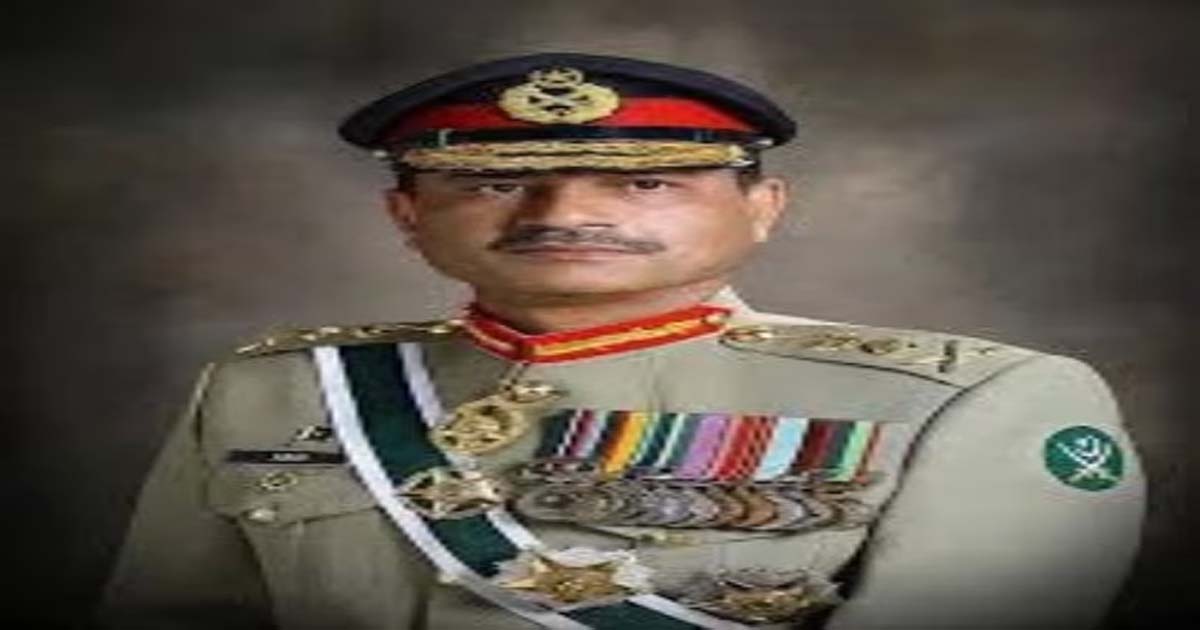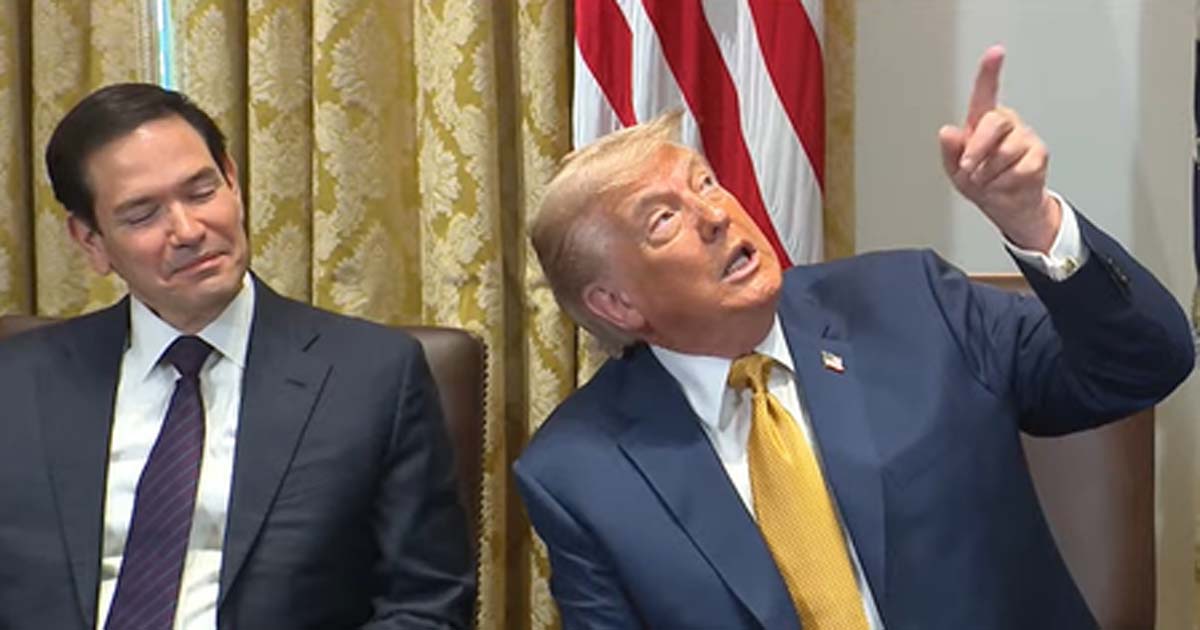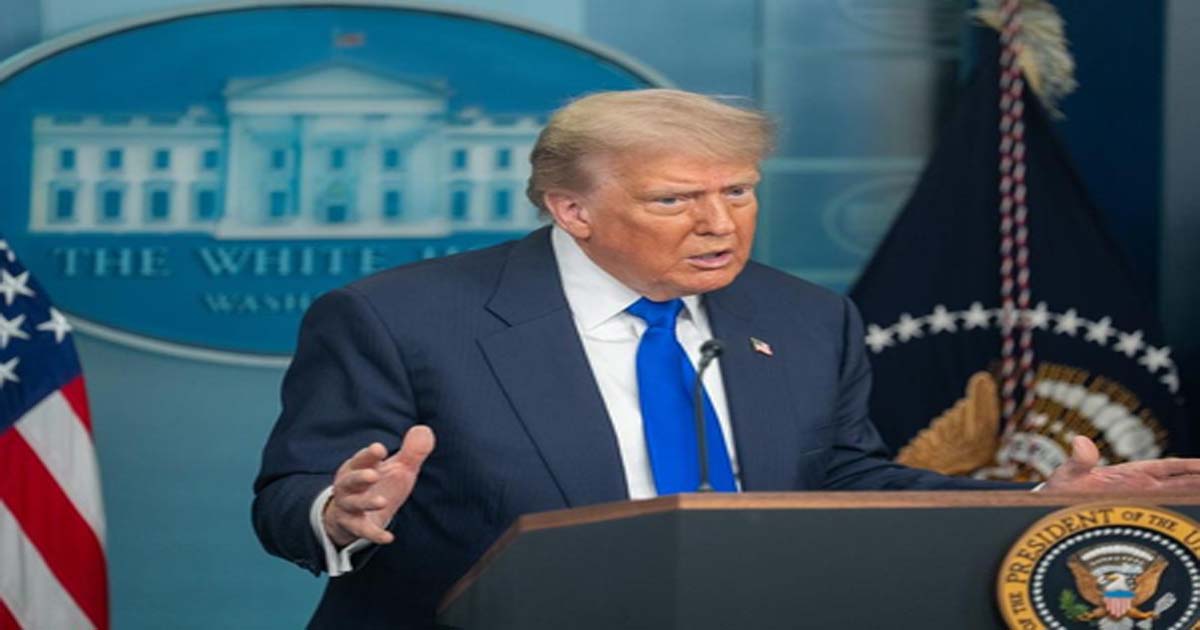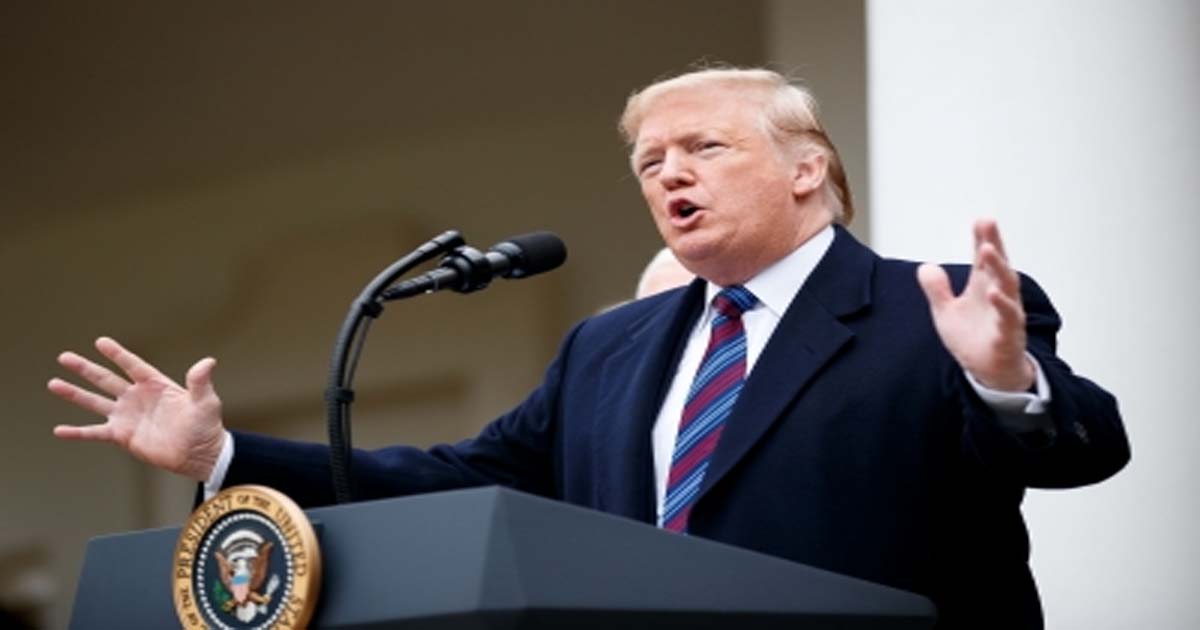International
Trump to meet Pakistan Army chief Asim Munir over lunch

Washington, June 18: US President Donald Trump will host Pakistan’s Army Chief, Field Marshal Asim Munir, at the White House on Wednesday (local time).
The lunch meeting is scheduled to take place at 1:00 p.m. in the White House’s Cabinet Room, as per the official presidential schedule.
The reports of the meeting come just days after the White House denied that Munir was invited to the US Army’s 250th-anniversary celebrations held on June 14, contradicting earlier claims of his attendance at the parade.
Munir, who arrived in Washington on Sunday for a five-day official trip, is also expected to meet US Secretary of State Marco Rubio and Defence Secretary Pete Hegseth, according to Pakistani daily Dawn.
The visit has been described as “primarily bilateral in nature” and aimed at reinforcing military and strategic ties between the two nations.
This meeting also comes amid the escalating hostilities between Iran and Israel, a conflict that entered its sixth consecutive day. While Trump demanded “unconditional surrender” from Iran, the Pakistani Army chief had earlier expressed support for Tehran.
This is Munir’s first official trip to the United States since the April 22 terror attack on tourists in Jammu and Kashmir’s Pahalgam, which killed 26 civilians.
The attack, claimed by Pakistan-based terror group Lashkar-e-Taiba’s offshoot, The Resistance Front, drew strong condemnation from India and heightened tensions with Pakistan.
India’s External Affairs Minister S. Jaishankar linked the Pahalgam massacre to what he termed as the Pakistani Army Chief’s “extreme religious outlook.”
Speaking to reporters last month, Jaishankar asserted, “To understand that, you have to see that on the Pakistani side, especially their Army chief, who is driven by an extreme religious outlook. There is clearly some connection between the views that were expressed and the manner the attack was carried out.”
The conflict subsided after Pakistan reached out to India with a ceasefire proposal.
Trump had claimed credit for brokering the truce, stating that he used trade leverage to encourage both parties to step back.
However, New Delhi swiftly denied that the United States played any mediatory role.
While Munir’s visit is being presented as an effort to stabilise military ties, it has not been without controversy. Supporters of former Pakistani Prime Minister Imran Khan staged a protest outside the Four Seasons Hotel in Washington, where Munir is staying.
The protesters, chanting slogans and accusing him of human rights abuses, labelled the Army Chief as the “Pakistanio ke qatil” and “Islamabad ke Katil,” turning the luxury hotel into an impromptu demonstration site.
One protester was heard shouting “Geedad, geedad, geedad (jackal, jackal, jackal)” — a pejorative expression meaning cowardliness and deception — as vehicles carrying officials arrived at the venue.
The episode, captured on video, quickly circulated on social media and was widely seen as a public embarrassment for the Pakistani military establishment.
International
Trump doubles down on 10 per cent tariff for BRICS; threatens 200 per cent tariff on pharma

New York, July 9: US President Donald Trump doubled down on his threat to charge BRICS members an additional 10 per cent tariff and alleged that the group was “set up to degenerate our dollar”.
Speaking to reporters as he presided over a Cabinet meeting on Tuesday, Trump said: “Anybody that’s in BRICS is getting a 10 per cent charge” — and that would include India.
On another trade issue that could affect India, Trump said that a 200 per cent tariff on pharmaceuticals would come soon, but added he would “give people about a year, year and a half”.
“We’ll give them a certain period of time to get their act together,” he said about the pharmaceutical companies.
India’s pharmaceutical exports to the US last year was nearly $9 billion.
A reporter recalled that he had said Monday night that trade deal was coming with India soon and asked him about the applicability of the proposed BRICS tariff.
He said: “Anybody that’s in BRICS is getting a ten per cent charge. If they’re member of BRICS, they’re gonna have to pay per cent tariff just for that one thing, and they won’t be a member for long.”
India has opposed a BRICS currency for trade to compete with the dollar and exercised a virtual veto on the proposal.
Laying out India’s policy, External Affairs Minister S Jaishankar said in March: “I don’t think there’s any policy on our part to replace the dollar.”
Affirming the importance of the dollar to the world’s and India’s economy, he added: “At the end of the day, the dollar as the reserve currency is the source of international economic stability, and right now, what we want in the world is more economic stability, not less.”
The letter he sent to BRICS member South Africa on Monday said only that it would face a 30 per cent tariff starting next month, but made no mention of BRICS penalty.
Trump said the BRICS tariff would come “soon”.
Despite India’s so far successful efforts to stop the creation of a BRICS currency, Trump continued to complain about a BRICS conspiracy.
“BRICS was set up to hurt us. BRICS was set up to degenerate our dollar and take our dollar as the standard, take it off as the standard,” he said.
He said that he would oppose it because it would be like losing a war, he said.
“And that’s okay if they want to play that game, but I can play that game too,” he said.
He said he thought BRICS “largely broke up” with only a couple of countries hanging around.
“BRICS is not, in my opinion, a serious set-up,” he said.
But he said that they want to destroy the dollar “so that another country can take over and be the standard, and we’re not going to lose the standard”.
In fact, opposition from India to a BRICS currency is because of the threat of China manipulating it to its benefit.
Business
US tariffs to now take effect from August 1 as trade talks intensify

New Delhi/Washington, July 7: US President Donald Trump’s country-specific tariffs are now scheduled to take effect from August 1, offering a temporary reprieve as trade talks intensified with several countries, including India.
Earlier, the US tariffs were set to take effect from July 9.
Commerce Secretary Howard Lutnick announced the tariff reprieve on Sunday (US time) while speaking to the media. He noted that President Trump was “setting the rates and the deals right now”.
Trump told reporters that “I think we’ll have most countries wrapped up by July 9, either through letters or finalised agreements”, adding that notification letters warning of upcoming tariff hikes would begin going out from Monday (US time), with more expected to follow on Tuesday.
Trump said that sending notices would be much easier than “sitting down and working 15 different things…this is what you have to pay, if you want to do business with the United States.”
In April, Trump announced a base tariff of 10 per cent on most of America’s trading partners and thereafter additional duties ranging up to 50 per cent.
The US has announced trade deals with the United Kingdom and Vietnam so far, with some more trade deals apparently in the pipeline.
“President Trump’s going to be sending letters to some of our trading partners saying that if you don’t move things along, then on August 1 you will boomerang back to your April 2 tariff level. So I think we’re going to see a lot of deals very quickly,” US Treasury Secretary Scott Bessent told CNN.
India’s high-level official delegation led by chief negotiator Rajesh Agrawal has returned from Washington after the trade talks with US officials without reaching a final agreement on the sensitive issue of trade in agricultural and dairy products that the US is pushing for.
Meanwhile, Trump has announced that an additional 10 per cent tariff will be imposed on countries that “align themselves with the anti-American policies of BRICS”.
Business
12 nations to get US tariff letters on Monday, says Trump

New Delhi/Washington, July 5: US President Donald Trump has signed tariff letters on exports from 12 countries, which are expected to be sent out on July 7 (Monday).
Speaking to the media aboard Air Force One, the US President said the names of the countries which will receive the letters would only be revealed on Monday.
“I signed some letters and they’ll go out on Monday, probably 12. Different amounts of money, different amounts of tariffs,” he told reporters.
“The letters are better. It is much easier to send a letter,” Trump added.
Trump has suggested that the reciprocal tariffs could go even higher, potentially reaching 70 per cent for some countries, and take effect from August 1.
The US President in April unveiled a base tariff of 10 per cent on most goods entering the country, along with higher rates for certain countries, including China. Those elevated tariffs were later suspended till July 9.
Washington has concluded trade agreements with two countries – the United Kingdom and Vietnam.
Meanwhile, India’s high-level official delegation, led by chief negotiator Rajesh Agrawal, has returned from Washington without reaching a final agreement with US officials on the sensitive issue of trade in agricultural and dairy products that the US is pushing for.
However, there is still a glimmer of hope that an interim bilateral trade agreement may be reached at the highest political level in the two countries before the July 9 deadline.
The Indian team was in Washington for negotiations on an interim trade agreement with the US from June 26 – July 2.
According to Commerce Minister Piyush Goyal, India will not hurry into signing a free trade agreement under pressure from any deadline.
Speaking on the sidelines of an event in the national capital, Minister Goyal emphasised that India is ready to make trade deals in the national interest but it “never negotiates trade deals with a deadline”.
The US is seeking broader market access for its agricultural and dairy products, which is a major hurdle, as for India, this is a livelihood issue for the country’s small farmers, and hence, is considered a sensitive area.
While India is looking to secure an exemption from President Trump’s 26 per cent tariffs by concluding an interim deal before July 9, it is also pushing for significant tariff concessions for its labour-intensive exports such as textiles, leather and footwear.
-

 Crime3 years ago
Crime3 years agoClass 10 student jumps to death in Jaipur
-

 Maharashtra1 year ago
Maharashtra1 year agoMumbai Local Train Update: Central Railway’s New Timetable Comes Into Effect; Check Full List Of Revised Timings & Stations
-

 Maharashtra1 year ago
Maharashtra1 year agoMumbai To Go Toll-Free Tonight! Maharashtra Govt Announces Complete Toll Waiver For Light Motor Vehicles At All 5 Entry Points Of City
-

 Maharashtra1 year ago
Maharashtra1 year agoFalse photo of Imtiaz Jaleel’s rally, exposing the fooling conspiracy
-

 National News1 year ago
National News1 year agoMinistry of Railways rolls out Special Drive 4.0 with focus on digitisation, cleanliness, inclusiveness and grievance redressal
-

 Maharashtra1 year ago
Maharashtra1 year agoMaharashtra Elections 2024: Mumbai Metro & BEST Services Extended Till Midnight On Voting Day
-

 National News1 year ago
National News1 year agoJ&K: 4 Jawans Killed, 28 Injured After Bus Carrying BSF Personnel For Poll Duty Falls Into Gorge In Budgam; Terrifying Visuals Surface
-

 Crime1 year ago
Crime1 year agoBaba Siddique Murder: Mumbai Police Unable To Get Lawrence Bishnoi Custody Due To Home Ministry Order, Says Report












